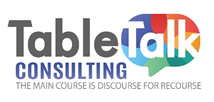
Shame, blame, and judgment are the Molotov cocktail for conflict in meetings. Have you stepped back to observe the group dynamics in meetings? Every day, we see conflict styles in action. All conflict is not bad; conflict can be good. Conflict is a by-product of not hearing with a listening ear and not seeing from the perspective of others’ interests.
In meetings, conflict create what I call the ‘jailhouse effect.’ Signs of the ‘jailhouse effect’ are strong opinions of some that do not allow the full participation of others in the meeting. The ‘jailhouse effect’ is in full force when attendees feel trapped behind bars with no way of escape. People in the meeting feel captive and do not feel safe to speak up unless given permission.
When this happens, it usually results in a lack of active participation, low attendance, member dropout, or the group becomes ineffective. Over time, the group may stop meeting altogether. Have you experienced this or are you currently experiencing this? It is uncomfortable and can damage not only an individual but the entire team or organization. In fact, without timely and appropriate intervention, conflict may escalate out of control and destroy the very essence or purpose for meeting.
So, how do we defuse conflict when it is disruptive, explosive, and nonproductive in meetings? Inquiring minds would like to know. However, there is a way to address conflict that honors and respects all parties, but it starts first with establishing a behavioral covenant. A behavioral covenant is an agreement of how the group will conduct itself to promote open communication and creative problem solving.
In addition to everyone understanding and agreeing to the rules of engagement, I recommend conducting a Thomas-Kilmann Instrument (TKI), a conflict mode assessment to determine each person’s conflict style and triggers. Understanding the conflict styles that reside on the team and establishing a behavioral covenant will aid team members in keeping “the one thing, the main thing.” It allows everyone to focus on what is most important and supports the group to engage in difficult conversations with compassionate curiosity to create mutual gains.
If you want to learn more about defusing explosive conflict in meetings, schedule a training session to begin the process of intentional problem solving. Our framework for mediation and negotiation is customizable to fit your unique situation. This is your invitation to have a seat at the table to create transformation through the appropriate processing of information. All conversations at the table are confidential. It is a safe space, “where discourse is the main course for recourse.”
